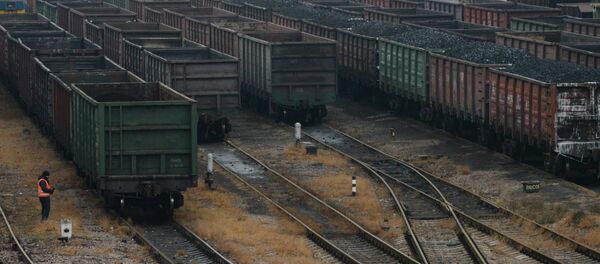Speaking to Ukrainian business weekly Delovaya Stolitsa about his government's economic policies, Ukrainian Prime Minister Volodymyr Groysman said he was confident that carrying out the right reforms would "completely change Ukraine and turn it into the biggest success on the [European] continent" and lead to an accelerated economic growth rate of at least 5% per year.
Asked to comment on Groysman's latest remarks, Ukrainian political scientist Alexander Dudchak said that the prime minister's strategy seems to have shifted to 'storytelling' to convince Ukrainians that overall, everything is fine, even while the real economic picture continues to deteriorate.
"Kiev has been turning Ukraine into god knows what for three years now," the observer recalled. "This is a government of 'hitmen' and storytellers: they are deliberately killing the economy by foreign degree, getting certain personal bonuses for doing so. At the same time, they are trying to tell ordinary Ukrainians that any problems they have are their personal problems, and that on the whole, the situation in the country is fine. Ukrainians are supposed to see themselves as defective, as some kind of losers…"
At for the prime minister's promises of 5% GDP growth, this was just a pipedream, Dudchak said.
"Of course all of these fairytales will remain just that. The current government understands perfectly well that their time is limited. They aren't worried about what will happen in three or four years, because they think they won't be held accountable for it. And Groysman himself can tell such fairy tales, because he will always have the opportunity to say that he was not allowed to carry through with his plans to the end…Therefore, these words [about 5% GDP growth] are just that – words."
The reported economic stabilization has been of little comfort to ordinary Ukrainians. According to a recent poll by Rating Group Ukraine, 75% of Ukrainians believe their country is 'in a state of collapse'. 60% said they cannot afford to pay their utility bills. 97% said they have been personally affected by price hikes for consumer goods and services. 70% said they fear the situation may lead to large-scale protests like the ones which rocked the country in 2004 and 2014 and precipitated the Orange Revolution and the Maidan coup d'état.





